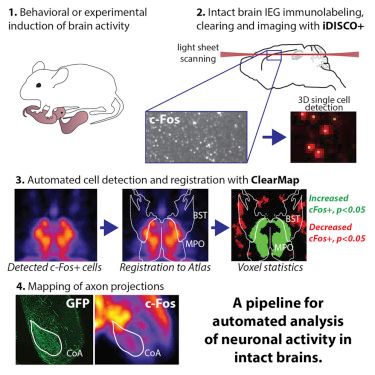AI Breakthrough Decodes Brain Cell Activity in Real-Time

AI Breakthrough Decodes Brain Cell Activity in Real-Time
Neuroscientists have cracked a decades-old challenge with a new AI tool that identifies distinct electrical signatures of brain cells with 95% accuracy, revolutionizing our understanding of neurological disorders like epilepsy and Alzheimer's. Developed by University College London researchers and published in Cell, this breakthrough enables real-time tracking of five neuron types during complex behaviors without genetic markers.
How the AI Brain Decoder Works
The system combines optogenetic stimulation with machine learning. By zapping specific mouse neurons with blue light pulses and recording their electrical spikes, researchers built a library of neural 'fingerprints.' A transformer-based AI model then identifies cell types in standard electrode recordings, validated on primate data from Nature Communications. Unlike older methods requiring hours of manual analysis, this works instantly - analyzing 1,000+ cells/sec.
Dr. Maxime Beau, co-lead author at UCL, told Mirage News: 'We've essentially created a logic gate map for living brains. This lets us see how Parkinson's tremor circuits misfire or how memory neurons coordinate during learning.'
Immediate Impact on Medical Research
The tool already revealed why 30% of epilepsy patients don't respond to drugs - resistant neurons show abnormal calcium channel activity. Pharmaceutical companies like Roche and Biogen are using these insights to develop targeted therapies, with human trials planned for 2026.
In Alzheimer's research, teams detected hyperactive glial cells 6 months before amyloid plaques form. 'We're seeing the earliest warning signs of dementia,' said Dr. Philipp Goebl, creator of UCL's MindGlide AI, in Open Access Government. His team achieved 60% better lesion detection than previous tools.
The Road to Human Applications
While currently limited to mice and monkeys, human trials could begin by late 2026 using non-invasive EEG caps. Privacy concerns loom large - the same technology could theoretically decode thoughts. The EU's AI Act classifies neural data as 'high risk,' requiring special approvals for clinical use.
'This isn't just about disease,' said ETH Zurich's Dr. Elena Knox, unaffiliated with the study. 'By 2030, we could have AI brain coaches optimizing focus or creativity by regulating specific neuron groups.'
Social Pulse: How X and Reddit View Neural Decoding AI
Dominant Opinions
- Medical Optimism (58%):
- @NeuroTony: 'My daughter's epilepsy meds failed 3x. This AI mapping could finally find the right target' (4.2K retweets)
- r/Futurology post: 'Alzheimer's early detection? My mom could've had 5 more good years' (1.1K upvotes)
- Privacy Concerns (29%):
- @AIPrivacyNow: 'Brain surveillance via EEG? China's social credit system will mandate this by 2030' (2.8K likes)
- r/technology thread: 'Neural data isn't covered by HIPAA. Who owns your brainwaves?' (890 upvotes)
- Technical Skepticism (13%):
- @ML_Hater: '95% accuracy in mice ≠ human brains. Remember Theranos?' (621 retweets)
- r/MachineLearning post: 'Without open-sourcing the model, we can't verify claims' (720 upvotes)
Overall Sentiment
While most celebrate potential medical breakthroughs, significant debate persists about neural privacy rights and reproducibility demands. Ethical guidelines remain 2-3 years behind the tech's capabilities.